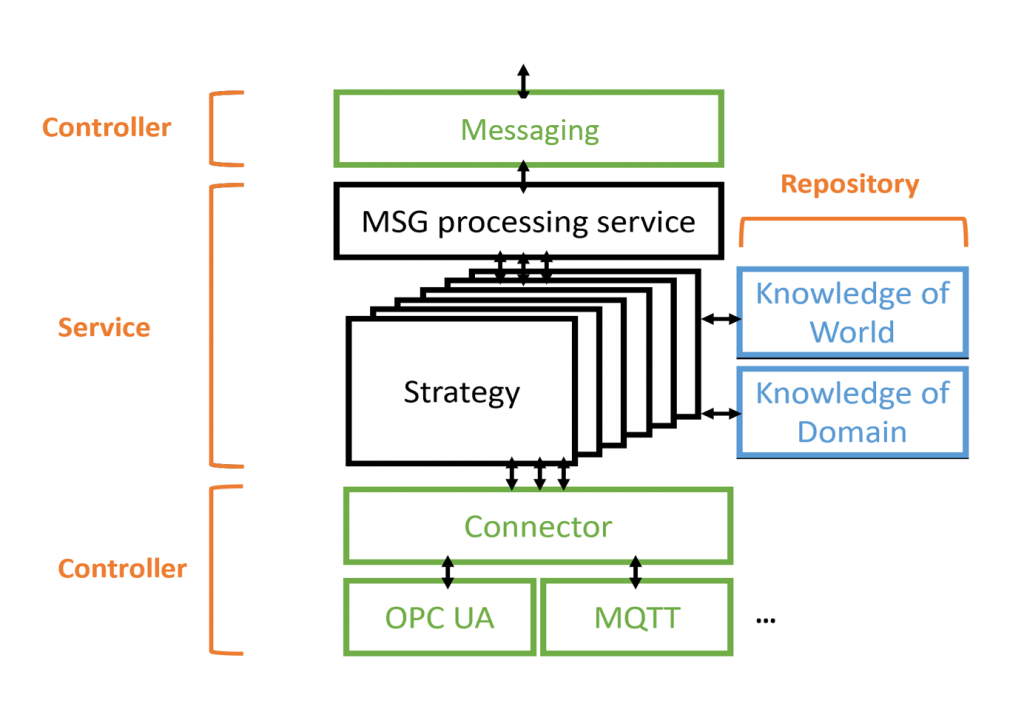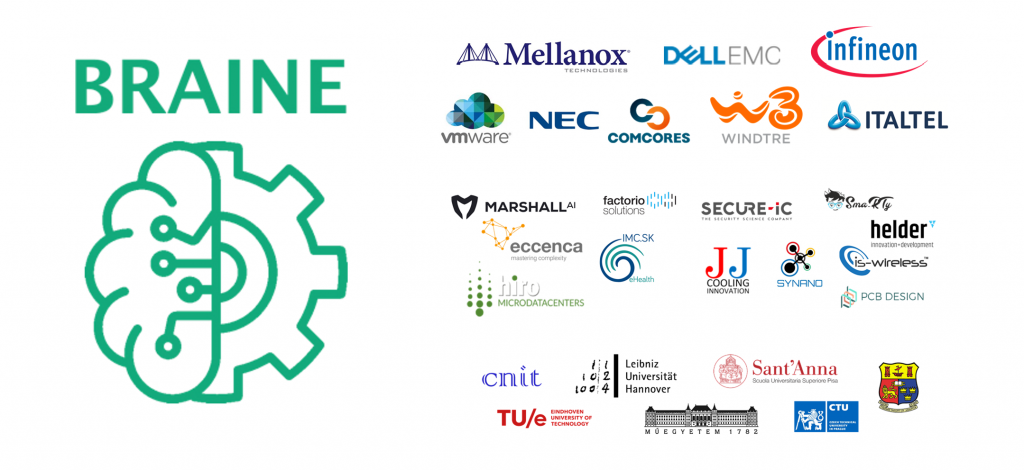The team of the RICAIP Testbed Prague, CIIRC CTU, leveraged the experimental infrastructure within their involvement in the BRAINE project, which was successfully completed in November 2023. They contributed with a specific use-case for the edge BRAINE EMDC (Edge Micro Data Center) Platform, the main BRAINE result. The contribution of the CIIRC CTU’s researchers in cooperation with the Factorio Solutions company focused on a robotics use case for Industry 4.0. It resulted in two main components: a multi-agent platform and Motif Discovery tool (MOD). The multi-agent platform is designed for production planning, enabling reactive negotiation of production plans, speeding up planning, and allowing flexible reconfiguration of facilities.
Edge computing presents an innovative network architecture departing from cloud computing, bringing data processing intelligence closer to its sources. This approach offers various technical benefits, including reduced latency, secure decentralized processing and storage, scalability with lower complexity, adaptability of nodes to underlying applications, and enhanced reliability.
By natively incorporating artificial intelligence (AI), edge computing can significantly enhance services and applications without relying on cloud-based AI. This technology is crucial for realizing transformative advancements like Factory 4.0, smart manufacturing, 5G, Internet of Things, self-driving vehicles, remote robotics in healthcare, machine vision, and more.
The integration of AI into edge computing is not solely a software endeavor; it necessitates the design of specialized hardware tailored for big data processing and AI. The overarching goal of the BRAINE project is to propel the development of the Edge framework, focusing on energy-efficient hardware and AI-empowered software systems capable of processing Big Data at the Edge. These systems aim to ensure security, data privacy, and sovereignty.
The multi-agent platform leverages edge computing to enhance its capabilities in production planning and operational efficiency within the Industry 4.0 framework. By utilizing edge computing, the platform is able to process data closer to the source of data generation, significantly reducing latency and increasing the speed of decision-making processes. This edge-centric approach allows for real-time reactive negotiation of production plans, immediate adaptation to changes in manufacturing processes, and a more robust and flexible reconfiguration of production lines to meet evolving production demands.

The MOD component is used for pattern discovery in sensor data, online detection model teaching, and predictive failure detection. All the components of the use case were tested in a near-real environment in RICAIP Testbed.
BRAINE: Big data pRocessing and Artificial Intelligence at the Network Edge
H2020 ECSEL JU Grant No. 876967
www.braine-project.eu

